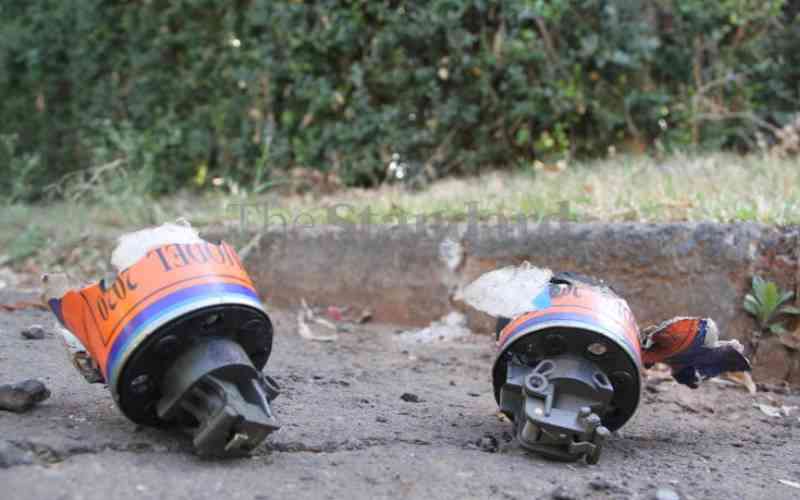×
The Standard e-Paper
Kenya’s Boldest Voice

Tear gas is a chemical compound commonly used as a riot control agent.
It temporarily makes people unable to use some of the keys senses of the human body by causing irritation to the eyes, mouth, throat, lungs, and skin






